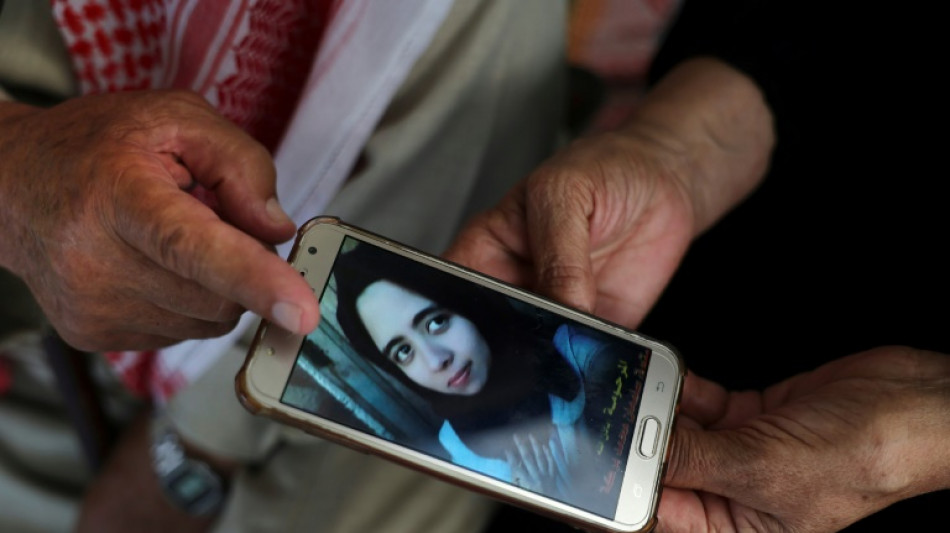
-
 Altomare hangs on to tie defending champ Korda at LPGA Match Play
Altomare hangs on to tie defending champ Korda at LPGA Match Play
-
Paraguay gold rush leaves tea producers bitter
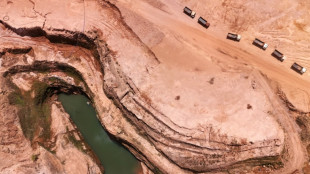
-
 Health concerns swirl as Bolivian city drowns in rubbish
Health concerns swirl as Bolivian city drowns in rubbish
-
Syria says deadly Israeli strikes a 'blatant violation'
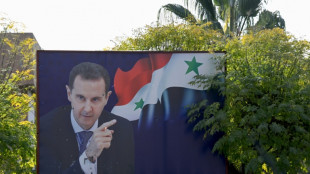
-
 Financial markets tumble after Trump tariff announcement
Financial markets tumble after Trump tariff announcement
-
Starbucks faces new hot spill lawsuits weeks after $50mn ruling

-
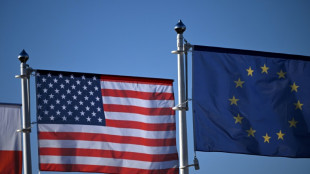 Europe riled, but plans cool-headed response to Trump's tariffs
Europe riled, but plans cool-headed response to Trump's tariffs
-
'Shenmue' voted most influential video game ever in UK poll

-
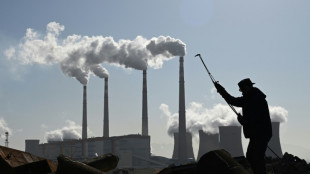 New coal capacity hit 20-year low in 2024: report
New coal capacity hit 20-year low in 2024: report
-
Revealed: Why monkeys are better at yodelling than humans

-
 Key details on Trump's market-shaking tariffs
Key details on Trump's market-shaking tariffs
-
'A little tough love': Top quotes from Trump tariff talk

-
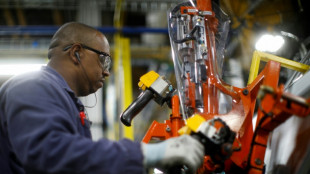 US business groups voice dismay at Trump's new tariffs
US business groups voice dismay at Trump's new tariffs
-
Grealish dedicates Man City goal to late brother

-
 US tariffs take aim everywhere, including uninhabited islands
US tariffs take aim everywhere, including uninhabited islands
-
Trump sparks trade war with sweeping global tariffs
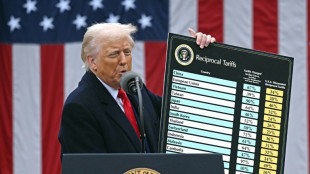
-
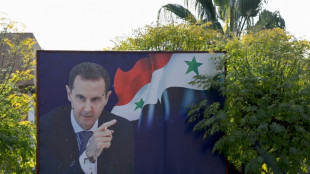 Israeli strikes hit Damascus, central Syria; monitor says 4 dead
Israeli strikes hit Damascus, central Syria; monitor says 4 dead
-
Slot 'hates' offside rule that gave Liverpool win over Everton

-
 US stocks end up, but volatility ahead after latest Trump tariffs
US stocks end up, but volatility ahead after latest Trump tariffs
-
Barca oust Atletico to set up Clasico Copa del Rey final
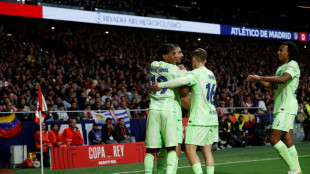
-
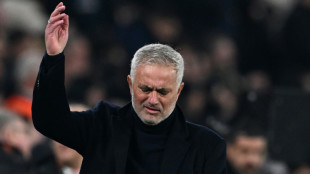 Mourinho grabs Galatasaray coach's face after losing Istanbul derby
Mourinho grabs Galatasaray coach's face after losing Istanbul derby
-
Grealish strikes early as Man City move up to fourth in Premier League

-
 Reims edge out fourth-tier Cannes to set up PSG French Cup final
Reims edge out fourth-tier Cannes to set up PSG French Cup final
-
Liverpool beat Everton as title looms, Man City win without Haaland

-
 Jota wins bad-tempered derby as Liverpool move 12 points clear
Jota wins bad-tempered derby as Liverpool move 12 points clear
-
Inter and Milan level in derby Italian Cup semi

-
 Stuttgart beat Leipzig to reach German Cup final
Stuttgart beat Leipzig to reach German Cup final
-
Trump unveils sweeping global tariffs
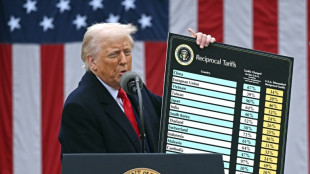
-
 Italian director Nanni Moretti in hospital after heart attack: media
Italian director Nanni Moretti in hospital after heart attack: media
-
LIV Golf stars playing at Doral with Masters on their minds

-
 Trump unveils sweeping 'Liberation Day' tariffs
Trump unveils sweeping 'Liberation Day' tariffs
-
Most deadly 2024 hurricane names retired from use: UN agency

-
 Boeing chief reports progress to Senate panel after 'serious missteps'
Boeing chief reports progress to Senate panel after 'serious missteps'
-
Is Musk's political career descending to Earth?

-
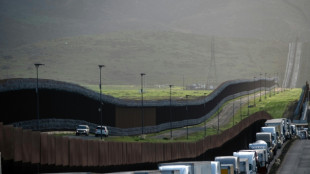 On Mexico-US border, Trump's 'Liberation Day' brings fears for future
On Mexico-US border, Trump's 'Liberation Day' brings fears for future
-
Starbucks faces new hot spill lawsuit weeks after $50mn ruling

-
 Ally of Pope Francis elected France's top bishop
Ally of Pope Francis elected France's top bishop
-
'Determined' Buttler leads Gujarat to IPL win over Bengaluru

-
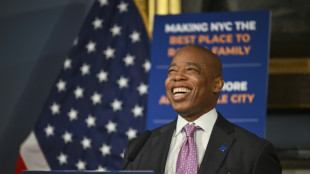 US judge dismisses corruption case against New York mayor
US judge dismisses corruption case against New York mayor
-
Left-wing party pulls ahead in Greenland municipal elections
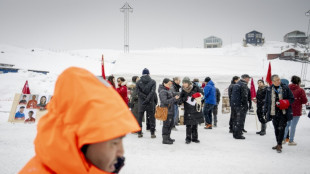
-
 Blistering Buttler leads Gujarat to IPL win over Bengaluru
Blistering Buttler leads Gujarat to IPL win over Bengaluru
-
Tesla sales slump as pressure piles on Musk

-
 Amazon makes last-minute bid for TikTok: report
Amazon makes last-minute bid for TikTok: report
-
Canada Conservative leader warns Trump could break future trade deal
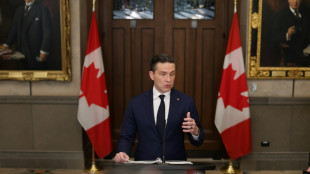
-
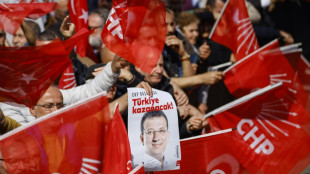 British band Muse cancels planned Istanbul gig
British band Muse cancels planned Istanbul gig
-
'I'll be back' vows Haaland after injury blow

-
 Trump to unveil 'Liberation Day' tariffs as world braces
Trump to unveil 'Liberation Day' tariffs as world braces
-
New coach Edwards adamant England can win women's cricket World Cup
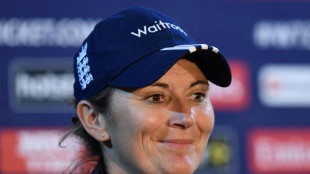
-
 Military confrontation 'almost inevitable' if Iran nuclear talks fail: French FM
Military confrontation 'almost inevitable' if Iran nuclear talks fail: French FM
-
US stocks advance ahead of looming Trump tariffs


Gaza's women and girls see no escape from violence
Seventeen-year-old Istabraq Baraka fell pregnant soon after her wedding in the Gaza Strip. Three months later her husband killed her.
"She died from a severe beating, which caused bleeding on the brain and lungs and broken ribs," said her mother Nazmiya.
Sitting with her husband Suleiman in a garden in Abassan, near the city of Khan Yunis in the south of the Palestinian territory, the 53-year-old talks at lightning speed about last year's killing of one of her two daughters, as well as the loss of an unborn grandchild.
Istabraq's father wipes tears away with the corner of a red-and-white keffiyeh wrapped around his head.
He laments the slow pace of legal proceedings since his daughter's husband handed himself in to the police shortly after the killing.
"The perpetrator admitted his crime, a year and a month until now and nothing's happened," said the 70-year-old.
Femicide is on the rise in Gaza, according to figures from the Women's Centre for Legal Aid and Counselling, a Palestinian civil society group.
The organisation registered six killings and suspicious deaths related to domestic violence in 2019, a figure which rose to 19 the following year.
UN Women said the situation worsened at the onset of the coronavirus pandemic in 2020, which resulted in the "lockdown of survivors of violence with their abusers".
Ayah Alwakil, a lawyer from the Palestinian Centre for Human Rights, said women can consider violence from their husbands normal behaviour in Gaza's patriarchal society, which has been controlled by the Hamas Islamist group since 2007.
"Some women don't know their rights and some others are afraid of going to court, for lack of family support," she added.
The Palestinian Central Bureau of Statistics said 38 percent of women in Gaza faced physical or psychological violence from their husbands in 2019, but Alwakil estimated the true figure to be far higher.
- Tied up, left to die -
Men convicted of killing their wives can be jailed or face the death penalty. But the sentence is reduced if they commit a so-called "honour killing", in which a relative is murdered because they are deemed to have brought shame to the family.
UN Women says such "outdated and discriminatory laws" impede justice.
Additionally, those seeking to escape domestic violence risk losing their children.
If a wife obtains a divorce, custody passes to the ex-husband once a daughter turns 11 or a son reaches nine.
Noha Khaziq, 31, stayed with her abusive husband because they had four children.
He killed her in February.
"Her husband tied her up and left her at home so that she couldn't escape and get out. When he returned she was dead," said her brother Abdelaziz, who shares his sister's green eyes.
"We feel satisfied with the death sentence ruling against the husband, five months after the heinous crime, but we demand the sentence be enforced quickly," said the 28-year-old.
The Khaziq family has not seen Noha's children since she was killed, because custody was granted to their father's relatives.
- 'Not on women's side' -
Fifteen years since the Israeli-led blockade of Gaza began, it is almost impossible for women fleeing violence to leave the Palestinian enclave.
In a territory home to 2.3 million residents, around 40 women are staying in only two specialised refuges.
When AFP visited one of them, a woman with bruises covering one side of her face sat in a corner. She was about to return to her husband, rather than risk losing access to her children.
"The law is not on women's side all the time in the Gaza Strip," said Aziza Elkahlout, a spokeswoman for the social development ministry which runs one of the refuges.
"We thought of opening the safe house because of the injustice women are exposed to," she added, blaming the Israeli blockade for Gaza's dire living conditions.
But such reasoning is inadequate for Suleiman Baraka, who says the authorities are partly responsible for his daughter's killing.
"The government helps the offender because it doesn't take any immediate decisions," said Istabraq's father.
He is reminded of his daughter every time he reaches for his phone, whose screen shows a photo of him with his two girls.
More than a year since Istabraq was killed, he warned that delays in reaching justice only "encourage criminals".
D.Moore--AMWN